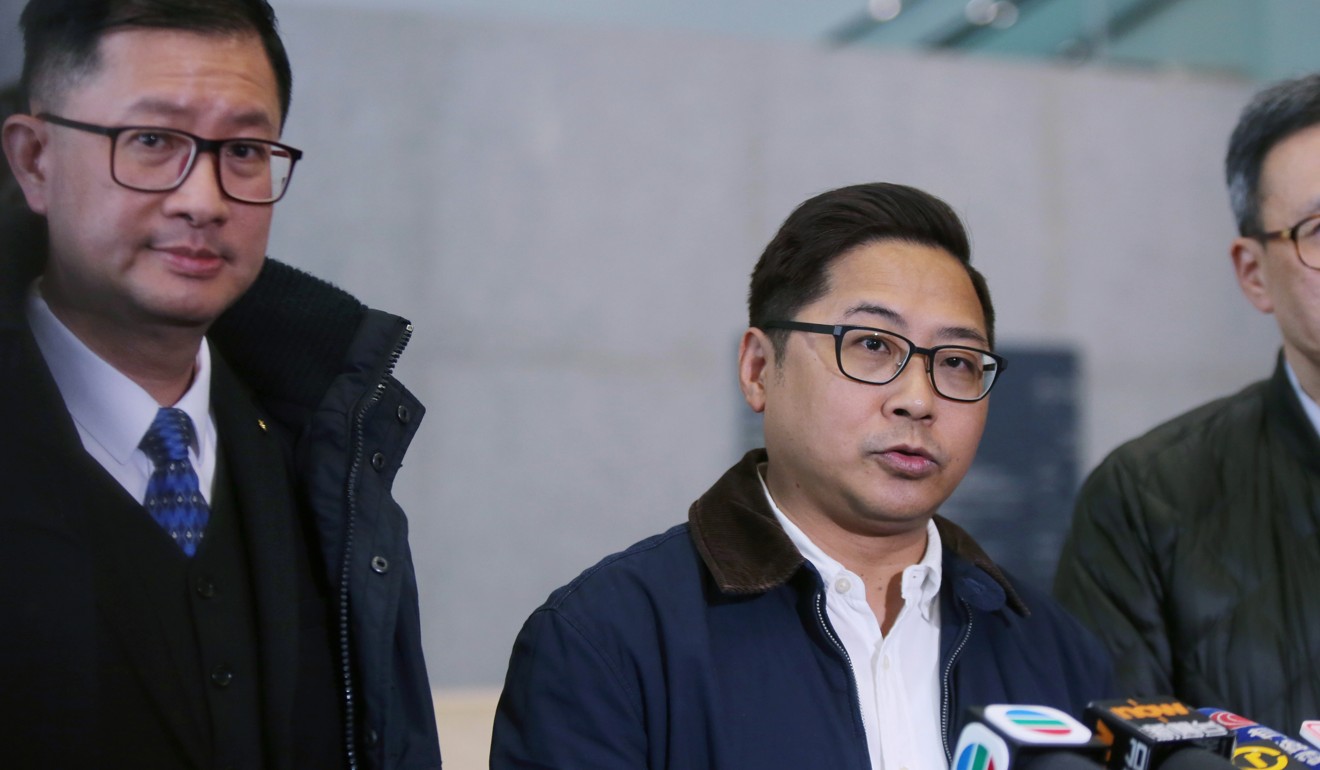
Will government-backed campaign to change Hong Kong parents’ obsession with school grades succeed in city where competition is rife?
- Proposal comes after 15-month review by task force to look into home-school cooperation and parent education, set up by chief executive in 2017
- ‘Positive Parents Campaign’ aims to change mindset of parents through videos, articles and school activities
A government-appointed group has recommended a campaign urging Hong Kong parents to cultivate a balanced and more fulfilling life for their children amid the city’s culture of excessive competition.
The movement would be aimed at bringing about a mindset change in parents, as their obsession with academic grades could discourage the young from learning, said Tim Lui Tim-leung, chairman of the Task Force on Home-school Cooperation and Parent Education on Sunday.
“It’s understandable that all parents want the best for their kids but more doesn’t mean better because if it becomes a rigid routine of countless tutors and after-school courses, it strips children of their right to really enjoy learning,” Lui said on a radio programme.
Less homework, more fun: why Hong Kong parents must let kids go out and play
“Parents need to give their kids the right amount of boost at the right time, and not dump them with playgroups and courses at the age of two,” he added.
He was speaking after an 15-month review by the task force, comprising scholars, experts, schools and parent representatives. It was set up by Chief Executive Carrie Lam Cheng Yuet-ngor at the end of 2017.
A rigid routine of countless tutors and after-school courses strips children of their right to really enjoy learning
The citywide “Positive Parents Campaign” proposed by the task force is one of 18 recommendations submitted to the Education Bureau last Monday. The campaign will use various platforms to spread its message to parents, such as through videos and articles, as well as school activities to involve parents of children from different levels.

Other proposals include increasing the government subsidy for schools to set up Parents Teachers Associations (PTA), urging companies to organise parent education courses at the workplace, and designing training courses for teachers to enhance their skills in promoting home-school cooperation.
One in three among young suffers from stress, anxiety or depression: survey
Lui, who is also the Education Commission chairman, said the campaign targeting parents should last at least three years as it involved a cultural change. He added that more vigorous research should be carried out by the city’s institutions to provide scientific proof to parents that excessive drilling and joining playgroups at a young age did not necessarily contribute greatly to a child’s development.
“Phrases like ‘win at the starting line’, or the idea of wanting to enrol children in elite schools give parents the wrong idea that if they don’t, their children will fail – and this is the kind of message we want to get out there with the campaign,” Lui said.
Drilling is not learning, says highest ever DSE scorer and musician
Another task force member Henry Tong Sau-chai also warned that children’s mental health would be affected by high pressure from parents over school grades.
“Too much focus on grades and academics will influence the relationships between the teachers, parents and children,” Tong said.
“Many schools now stress creativity, so children do need room and space to unleash their imagination, but if their schedules are packed with tutors and other courses, how can they be creative?”

He conceded that implementing the campaign would not be easy as most parents grew up with a belief in rote learning and felt they had to force the practice on their children.
Tong also revealed only a third of kindergartens in the city had established a PTA group, a number he found unsatisfying.
“Through more positive communication with schools, parents can not only get informed of their child’s learning, but also improve the child’s balanced development,” he said.
However, Annie Cheung Yim-shuen, a mother of two, questioned the effectiveness of the campaign and the other recommendations.
It’s for parents with similar backgrounds to support each other and give one another encouragement rather than a course where you sit and listen for hours on theories
“There are in fact many parental courses out on the market, organised by NGOs and other groups. Some are even free. However, what is learned can’t always be applied to the reality at home, and therefore such help is limited.”
Cheung, whose children are in their teens, said the root of the problem laid with the education system, and unless that was changed, the culture among parents would continue.
“It’s reasonable for parents to worry about their children and push them to do better academically because the competition starts as early as kindergarten, with interviews young children have to go through.
“It’s also the cultural expectation that if their kids are not university graduates, they won’t find a decent job, so they start them young with the tutoring.”
Cheung suggested setting parent support groups instead.
“It’s for parents with similar backgrounds to support each other and give one another encouragement rather than a course where you sit and listen for hours on theories.”

